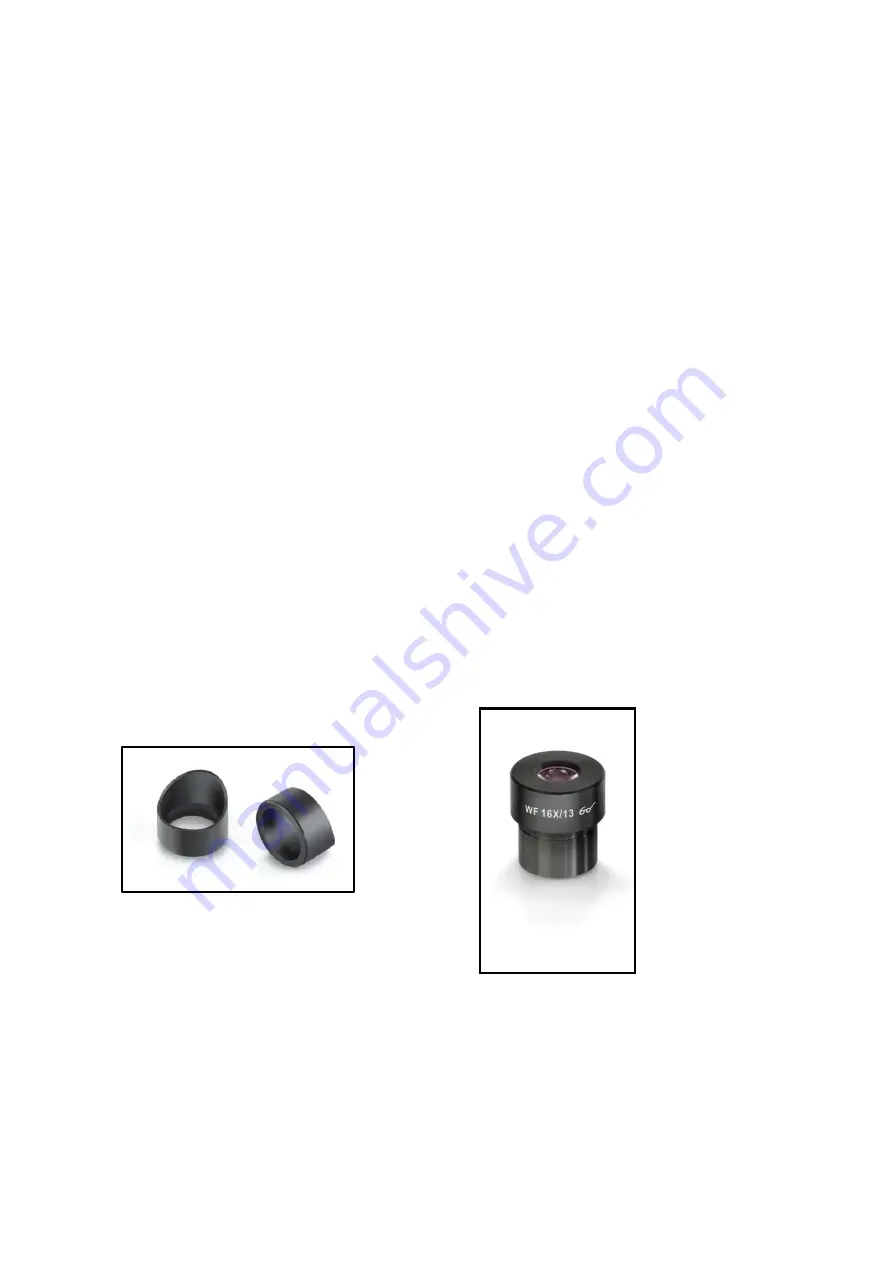
OBE-1-BA-e-1611
18
5.8 Using eye cups
The eye cups supplied with the microscope can basically be used at all times, as
they screen out intrusive light, which is reflected from light sources from the
environment onto the eyepiece, and the result is better image quality.
But primarily, if eyepieces with a high eye point (particularly suitable for those who
wear glasses) are used, then it may also be useful for users who don’t wear glasses,
to fit the eye cups to the eyepieces.
These special eyepieces are also called High Eye Point eyepieces. They can be
identified by the glasses symbol on the side. They are also marked in the item
description by an additional “H” (example: HSWF 10x Ø 23 mm).
When fitting the eye cups, make sure that the dioptre setting is not moved. We would
therefore advise that you hold the dioptre compensation ring on an eyepiece with one
hand while you fit the eye cup with the other.
Before using the microscope, users who wear glasses must remove the eye cups,
which you may find on High Eye Point eyepieces.
As the eye cups are made of rubber, you must be aware that when you are using
them, they can become slightly dirty through grease residues. In order to maintain
hygiene, we would therefore recommend that you clean the eye cups regularly (e.g.
with a damp cloth).
Eye cups
High Eye Point eyepiece
(identified by the glasses symbol)
Summary of Contents for OBE 101
Page 2: ......
Page 7: ...OBE 1 BA e 1611 6 2 Nomenclature...
Page 8: ...7 OBE 1 BA e 1611 Rear view...
Page 10: ...9 OBE 1 BA e 1611...
Page 11: ...OBE 1 BA e 1611 10...








































